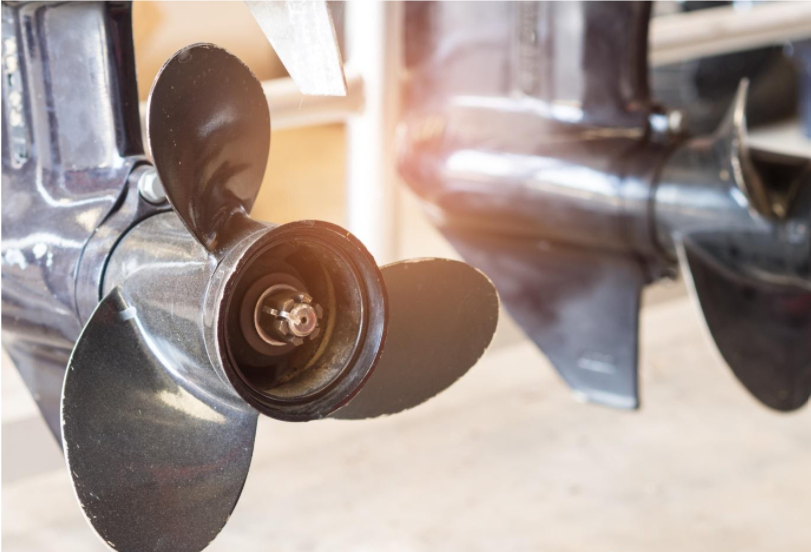Did you know that boat propellers need to be replaced if any blade is chipped or broken by more than 10 to 15 percent? Replacing a propeller gives you a chance to choose the best option for your boat. One of the questions that boat-owners face, however, is whether to go for an aluminum or stainless steel boat propeller.
How can you make the right choice? Let us take a closer look at the pros and cons of these two options.
Contents
Benefits of an Aluminum Boat Propeller
Perhaps the reason people choose aluminum boat propellers is that they are affordable. They can cost several hundreds of dollars less than stainless steel and that can make a difference if working with a smaller budget.
Aluminum boat propellers also come in a wide range of sizes and styles. For most sizes and type of boats, you will usually be able to find an aluminum propeller that fits perfectly. There are wider blades for pontoon boats and four-bladed models to improve hole-shot, as well as many other models to choose from.
Aluminum also weighs half as much as stainless steel and propellers made out of it tend to be easier to repair.
Drawbacks of an Aluminum Boat Propeller
Aluminum is not made to withstand blows. It is not a tough material, so if the propeller will be exposed to sandbars, muddy bottoms, and rocks, it is not the best choice. It can also flex under very high RPMs, causing a drop in pitch.
Although aluminum propellers are available in lots of sizes, if you need a vented propeller, you will not be able to find one made of aluminum.
Propellers made of aluminum tend to be thicker than those made of stainless steel and so will cause more drag.
Benefits of a Stainless Steel Boat Propeller
When choosing the correct boat propeller, you want an option that is durable. Stainless steel can offer that. They do not get damaged easily and it would take a very strong blow to break them or chip them.
Stainless steel blades flex less than aluminum ones, offering better performance. You can also expect to get less of a drag with stainless steel because the blades are thinner, as well. A stainless steel propeller can usually outperform one made of aluminum by 5 MPH at the top end and about 3 MPH at cruising speed.
Propellers made of stainless steel can handle sandy and shallow waters as well as abrasive conditions.
Drawbacks of a Stainless Steel Boat Propeller
Price is probably the biggest setback with stainless steel propellers. It is important to note, however, that a stainless steel prop will last longer than an aluminum one, so you may go through three or four aluminum ones when you would only need one stainless steel one. That ends up saving you money in the long run.
They are also heavier than aluminum, which might require a more powerful engine.
Get the Right Propellers
All things equal, a stainless steel boat propeller is the best option for your boat. It will cost a bit more up front but it will last you longer and offer better performance.
Get more boating tips by checking out our Lifestyle section!




